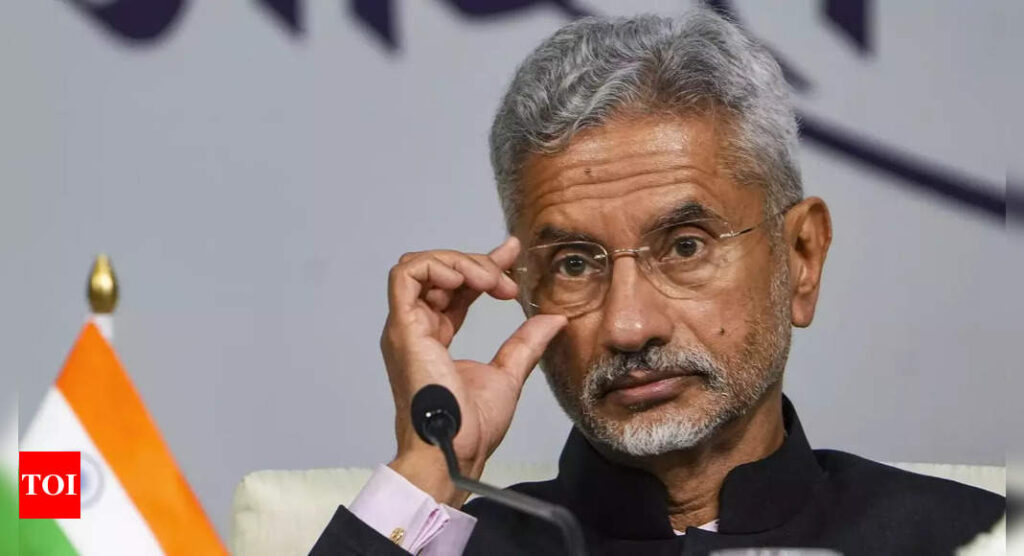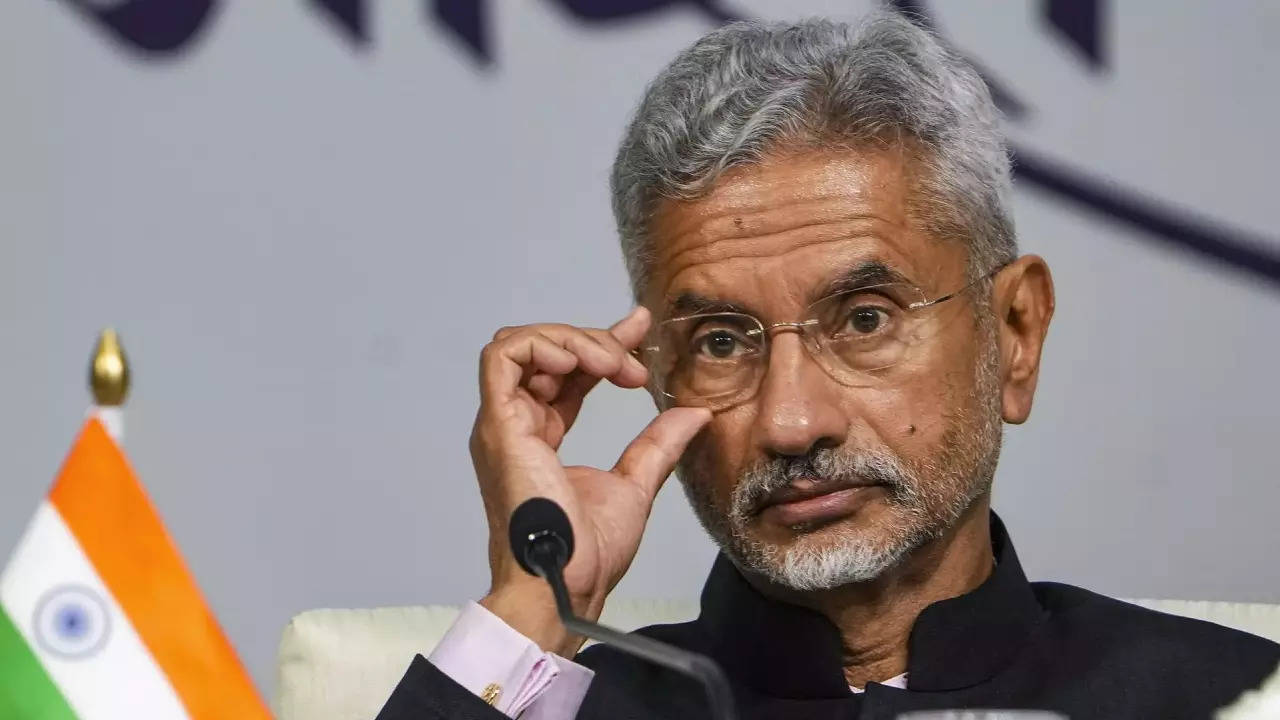[ad_1]
NEW DELHI: India on Saturday achieved a significant diplomatic victory during the G20 summit as consensus was reached on the adoption of a declaration, overcoming major differences regarding the Russia-Ukraine conflict. Prime Minister Narendra Modi, presiding over the summit, emphasized the need to end the “global trust deficit” and announced the admission of the African Union as a permanent member of the G20.
The New Delhi G20 Summit Leaders’ Declaration, a 37-page document, under India’s presidency, called upon all nations to uphold international law principles, including territorial integrity and sovereignty. It advocated for initiatives aimed at achieving a “comprehensive, just, and durable peace in Ukraine,” while firmly stating that the use or threat of using nuclear weapons is unacceptable.
With a sense of accomplishment, PM Modi declared, “Friends, we have just received good news. With the hard work of our teams and the cooperation of all of you, there is consensus on the New Delhi G20 Summit Leaders’ Declaration,” as he ceremoniously adopted the declaration by banging the gavel thrice.
As the G20 summit’s Delhi Declaration refrained from any explicit reference to Russia and instead emphasized the importance of refraining from the use of force for territorial acquisition and adhering to the principles of the UN Charter, foreign minister S Jaishankar explained that it should not be compared to the Bali Declaration. The Bali Declaration, issued at a previous G20 summit, had explicitly deplored Russia’s aggression against Ukraine.
“Regarding the change in language on the Russia-Ukraine conflict from the Bali Declaration — Bali was Bali, this is Delhi. Many things have happened since the Bali Declaration,” the external affairs minister said during a press briefing along with finance minister Nirmala Sitharaman and India’s G20 sherpa Amitabh Kant.
Jaishankar noted that the change in language between the two declarations reflected the evolving situation. He emphasized that the Delhi Declaration was a response to current concerns, just as the Bali Declaration addressed the concerns of its time.
Additionally, Jaishankar mentioned that the Delhi Declaration, which includes language related to Ukraine, was the result of consensus among G20 members, including China.
Amitabh Kant, the G20 Sherpa, highlighted the teamwork and efforts involved in achieving consensus on the Delhi Declaration, particularly concerning Ukraine. “On the Ukraine issue, India worked very closely with Brazil, South Africa, and Indonesia,” Amitabh Kant, the G20 sherpa, added.
The Delhi Declaration acknowledged the war in Ukraine, recalling previous discussions and resolutions at the UN Security Council and the UN General Assembly. It underscored the importance of states acting in a manner consistent with the UN Charter’s Purposes and Principles, refraining from the threat or use of force to seek territorial acquisition, and deeming the use or threat of use of nuclear weapons as inadmissible.
The Delhi Declaration also expressed appreciation for efforts related to the safe transportation of grain and foodstuff from Ukrainian ports and called for their timely and effective implementation to meet the demand in developing countries, particularly in Africa. It stressed the importance of upholding international law, territorial integrity, sovereignty, international humanitarian law, and the multilateral system.
The Declaration called for peaceful conflict resolution, diplomacy, and dialogue, emphasizing the adverse impact of conflicts on civilians and the global economy. It called for initiatives supporting a comprehensive, just, and durable peace in Ukraine while upholding the UN Charter’s principles for promoting peaceful and friendly relations among nations.
(With inputs from agencies)
The New Delhi G20 Summit Leaders’ Declaration, a 37-page document, under India’s presidency, called upon all nations to uphold international law principles, including territorial integrity and sovereignty. It advocated for initiatives aimed at achieving a “comprehensive, just, and durable peace in Ukraine,” while firmly stating that the use or threat of using nuclear weapons is unacceptable.
With a sense of accomplishment, PM Modi declared, “Friends, we have just received good news. With the hard work of our teams and the cooperation of all of you, there is consensus on the New Delhi G20 Summit Leaders’ Declaration,” as he ceremoniously adopted the declaration by banging the gavel thrice.
As the G20 summit’s Delhi Declaration refrained from any explicit reference to Russia and instead emphasized the importance of refraining from the use of force for territorial acquisition and adhering to the principles of the UN Charter, foreign minister S Jaishankar explained that it should not be compared to the Bali Declaration. The Bali Declaration, issued at a previous G20 summit, had explicitly deplored Russia’s aggression against Ukraine.
“Regarding the change in language on the Russia-Ukraine conflict from the Bali Declaration — Bali was Bali, this is Delhi. Many things have happened since the Bali Declaration,” the external affairs minister said during a press briefing along with finance minister Nirmala Sitharaman and India’s G20 sherpa Amitabh Kant.
Jaishankar noted that the change in language between the two declarations reflected the evolving situation. He emphasized that the Delhi Declaration was a response to current concerns, just as the Bali Declaration addressed the concerns of its time.
Additionally, Jaishankar mentioned that the Delhi Declaration, which includes language related to Ukraine, was the result of consensus among G20 members, including China.
Amitabh Kant, the G20 Sherpa, highlighted the teamwork and efforts involved in achieving consensus on the Delhi Declaration, particularly concerning Ukraine. “On the Ukraine issue, India worked very closely with Brazil, South Africa, and Indonesia,” Amitabh Kant, the G20 sherpa, added.
The Delhi Declaration acknowledged the war in Ukraine, recalling previous discussions and resolutions at the UN Security Council and the UN General Assembly. It underscored the importance of states acting in a manner consistent with the UN Charter’s Purposes and Principles, refraining from the threat or use of force to seek territorial acquisition, and deeming the use or threat of use of nuclear weapons as inadmissible.
The Delhi Declaration also expressed appreciation for efforts related to the safe transportation of grain and foodstuff from Ukrainian ports and called for their timely and effective implementation to meet the demand in developing countries, particularly in Africa. It stressed the importance of upholding international law, territorial integrity, sovereignty, international humanitarian law, and the multilateral system.
The Declaration called for peaceful conflict resolution, diplomacy, and dialogue, emphasizing the adverse impact of conflicts on civilians and the global economy. It called for initiatives supporting a comprehensive, just, and durable peace in Ukraine while upholding the UN Charter’s principles for promoting peaceful and friendly relations among nations.
(With inputs from agencies)
[ad_2]
Source link











More Stories
Congress replaces Kamal Nath, names an OBC as Madhya Pradesh chief | India News
Fire breaks out in ITBP camp in Srinagar; none hurt | India News
Parliament Security: Co-villagers give clean chit to Lalit Jha, parents to move court | India News